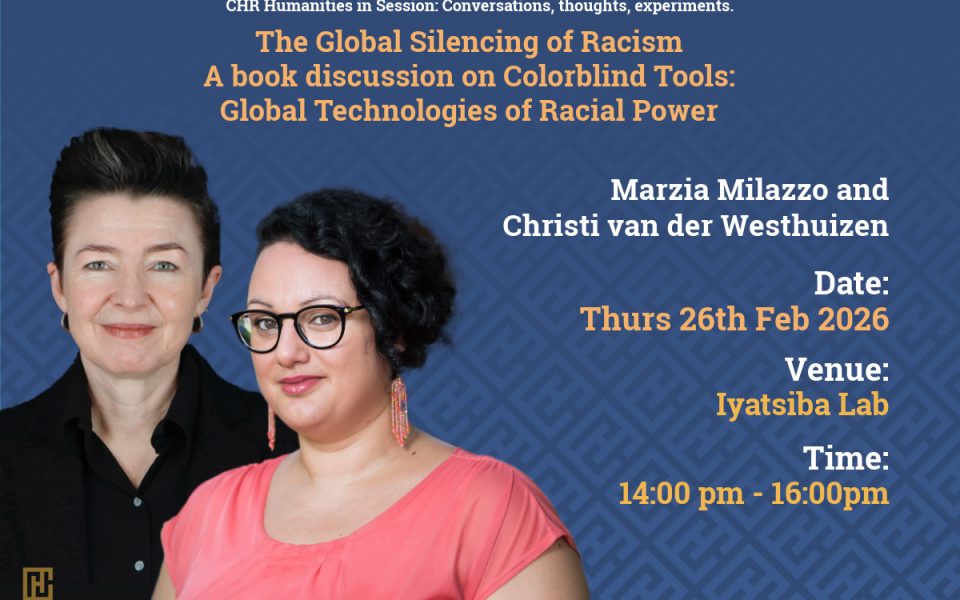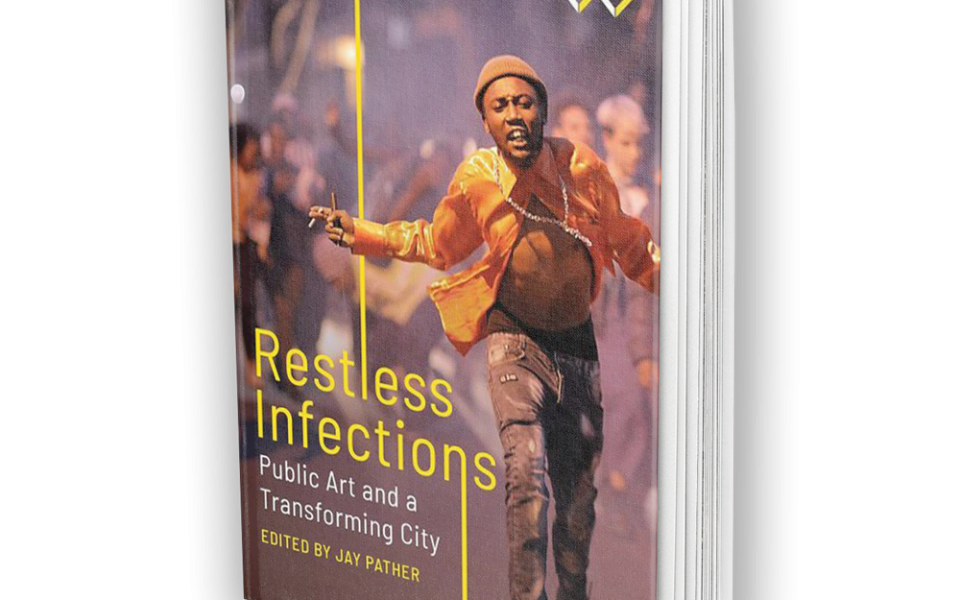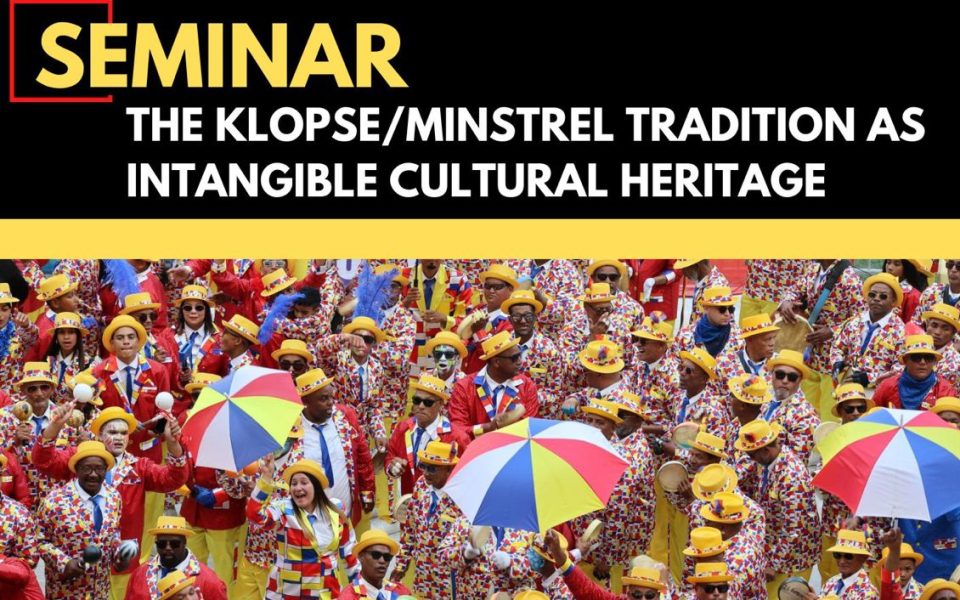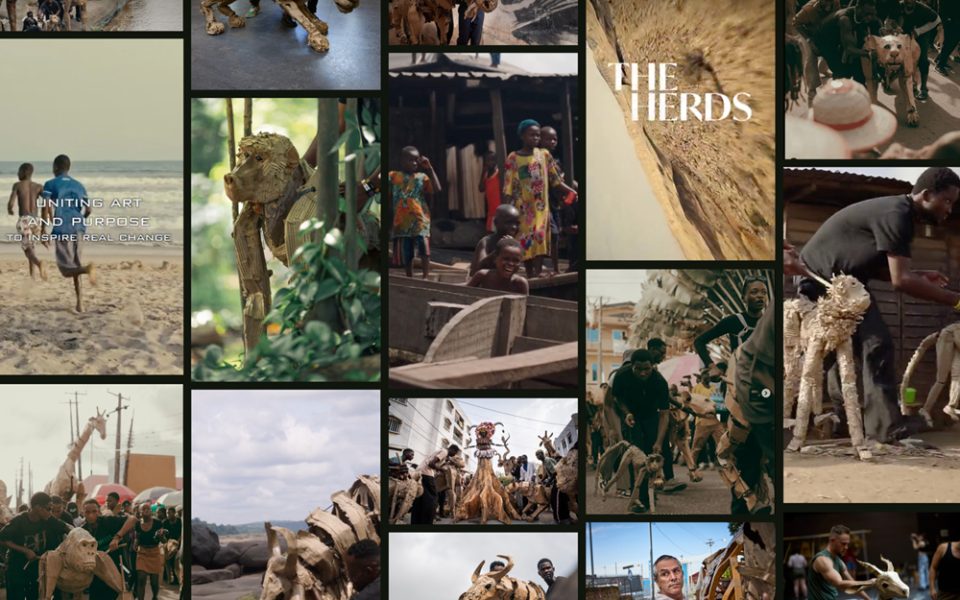[CLOSED] Call for Applications: 2021 Fellowships at the CHR

Applications closed 21 October 2020.
The Centre for Humanities Research (CHR) at the University of the Western Cape (UWC) is pleased to announce the 2021 Fellowship competition for Post-doctoral, PhD, MA and Honours awards.
We invite emerging scholars in the humanities and interpretive social sciences to join a team of scholars and artists who, in conversation and collaboration, continue to contribute significantly to redefining the study of the humanities and social sciences locally and internationally. In addition to pursuing their own research projects, fellows at the CHR will be core participants in the weekly South African Contemporary History and Humanities Seminar, reading groups, lecture series and other programmes, colloquia and conferences at the CHR. For 2021, prospective candidates will be selected in accordance with the research priorities of the National Flagship Project in the Humanities and the SARChI Chair in Visual History and Theory funded through the National Research Foundation, the National Institute for the Humanities and Social Sciences, and the Andrew W. Mellon Foundation.
Important note on residency requirements during the Covid pandemic:
While the CHR’s fellowship programme places a high value on the residency of fellows at the Centre, the current Covid-19 pandemic and resultant restrictions have made the physical residency more difficult. The CHR’s programming is continuing online, including weekly fellowship reading groups, discussions, guest lectures, seminars, and our annual winter school. This online residency format will continue until the national ministry of Higher Education determines that we can resume our activities on campus and in person. Once in person and on campus activities are permitted, the CHR’s physical residency requirement will come back into effect.
Research Areas
Aesthetics and Politics, Aesthetic Education, and the Becoming Technical of the Human
What are the outlines of an aesthetic education, constitutive of an “aesthetic field,” which may open onto other understandings of the concept of the postapartheid and the postcolonial, both in and beyond South Africa? What are the shifting dynamics of the relationship between the human and technology, between technogenesis and race, that impinge on the debate on aesthetic education? Research projects that explore these questions in relation to aesthetics and politics, aesthetics after colonialism, communicating the humanities, arts practice and humanities scholarship, specifically in relation to film, literary, music and theatrical forms, are particularly encouraged.
Kinetic Objects
Under the direction of the AW Mellon Chair in Aesthetic Theory and Material Performance, this project brings together an experiment in public arts practice and humanities scholarship on the question of the practice of postapartheid freedom. At the core of the Laboratory of Kinetic Objects is the question of how to think of aesthetics and the domains of artistic creation as sites to read and comprehend the dynamics of change in postapartheid South Africa. Research projects which explore how, and to what ends, artistic practices such as object theatre and puppetry arts might address themes such as, gender and identity formation, subject-object relations and legacies of the past so as to bring another perspective on contemporary predicaments in South Africa and Africa more generally, are especially encouraged.
Political Theory and Philosophy
In order to encourage new thinking that speaks to the predicaments of our times, we invite proposals from candidates in philosophy and political theory working on questions of Citizenship and Justice. These two concepts have a capacious and canonical presence in political philosophy, and in our understandings of both the classical and modern worlds. We encourage reflection on Citizenship and Justice in ways that seek to understand these in the wake of the plurality of sources of knowledge, and the histories and genealogies of these concepts immersed in the concrete politics of knowledge, power and political practices that have constituted our modernity. What might it mean then to teach and research political theory and political philosophy in an African university in the contemporary world?
Visual History & Theory
The SARChI Chair and research platform in Visual History &Theory address questions of the image in relation to other forms of knowledge production, creativity and contest in Africa and elsewhere. One of our tasks is to rethink hegemonic histories and theories of vision from the site of Africa, opening the way to re-theorise the humanities more globally. The project undertakes to activate our rich and vibrant photographic archives; to develop new ways of writing about images; and to interrogate the place of ‘the public’ through an examination of institutions such as museums and galleries, as well as practices around popular arts and media. Graduates and fellows of the programme are making a strong impact in the growing field of visual culture, especially through new research on the digital turn in postcolonial Africa. For 2021, one postdoctoral fellowship is available through application to the CHR. Students at Honours, MA and PhD level wishing to be part of this platform should apply through the NRF online submission system at https://nrfsubmission.nrf.ac.za/ .
Transformative Constitutionalism
This research project aims at establishing an interdisciplinary research group focused specifically on the meaning of free and equal citizenship in a united and diverse society forming under conditions of seismic constitutional, revolutionary and technological change. Research proposals that focus on the specific ruptures in the prevailing legal and humanities discourses on constitutional citizenship and social change in South Africa are particularly welcome, as are projects that seek to revisit the traditions of liberal democracy, humanism, and revolutionary nationalism as they define the struggle against apartheid.
Other Universals
Other Universals seeks to contribute to the widening of circuits of knowledge production that often favour the Northern Hemisphere, toward a more equitable inclusion of thinkers based in, and thinking from postcolonial locations. It seeks to develop comparative scholarship on traditions of thought that speak to universal predicaments from historically specific locations. We invite applications interested in the following areas of research such as revisiting Marxist traditions and the global South, theorizing and reading from and across margins and peripheries, what is critique, and the relationship between identity and identification in political and aesthetic worlds in the present.
Fellowship Awards
The value of these prestigious fellowships will be determined by guidelines set by the NRF and Andrew W. Mellon Foundation. In 2021, fellowships will be offered at Postdoctoral, PhD, MA and Honours levels in disciplines associated with the humanities and interpretive social sciences. The total award covers a monthly stipend, travel costs, accommodation and basic research expenses. The fellowship cannot be held concurrently with other fellowships without permission of the Director of the CHR and all recipients of grants will be required to fulfil the obligations of the program.
Successful candidates will be required to be present on campus during the relevant academic semesters unless granted leave by the fellowship board. All Postdoctoral fellows will be required to produce at least one peer-reviewed journal article, which when published should contain appropriate acknowledgement of the CHR, UWC. Postdoctoral Fellows are also required to show substantial progress towards publication of a monograph. The CHR together with the History Department hosts a weekly seminar series where prospective candidates can present their research and solicit valuable feedback from an interdisciplinary forum of academic staff and graduate students. The CHR also convenes regular reading groups, an annual Winter School and colloquia, in which fellows are required to actively participate. The Centre provides working space and access to the UWC-Robben Island Museum Mayibuye Archive collection.
.
Application Process
All applications should include a CV and a letter of motivation on why the CHR Flagship is the best fit for the study (candidates should identify the research theme best suited to their respective research interests – for more information on the research platforms in the Flagship on Critical Thought in African Humanities see http://www.chrflagship.uwc.ac.za).
All applicants must have their current degree “in-hand” by the time that the fellowship is to be taken up. Please note that the South African Academic Year begins in February, and all applicants must be ready to be in-residence at the CHR by the first week of March 2021.
In order to be considered for the fellowship, applicants must have made an independent application to the relevant academic department at UWC in which the degree will be conferred (https://www.uwc.ac.za/Students/Admin/Pages/Apply-Online.aspx).
Applicants should provide an academic writing sample or published journal article (MA candidates should submit a chapter from an Honours long paper; Honours applicants should submit a coursework essay), an academic transcript, and three independent academic references. Referee reports should be sent directly to centreforhumanitiesresearch@uwc.ac.za. Postdoctoral, PhD and MA applicants should submit a three-page description of their research project and a separate plan of work.
In addition, applicants should provide a brief statement on how their research intervenes in the larger national and international debates on the humanities, especially, albeit not exclusively, as these relate to advancing its study in Africa. All PhD, MA and Honours applicants must name the academic department beyond the CHR through which the degree will be pursued.
Selections are made by a committee comprising affiliated faculty with the CHR. The selection process will prioritise the applications of South Africans of historically disadvantaged groups. The final decision rests with the Selection Committee, which is chaired by the Dean of Arts and Humanities. The committee may interview applicants.
Applications along with all required documents must be submitted online at http://www.chrflagship.uwc.ac.za/fellowship-application. Electronic enquiries and referees’ letters may be electronically sent to centreforhumanitiesresearch@uwc.ac.za. Telephonic enquiries may be directed to +27 21 959 3162.




